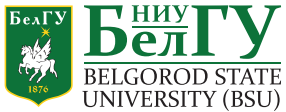Opportunities and Challenges in Implementing Educational Strategies for Students with Disabilities
DOI:
https://doi.org/10.18413/2949-267X-2024-3-4-0-2Keywords:
inclusion, education, educational strategies, youth, youth with disabilities, students, students with disabilitiesAbstract
The article is devoted to the analysis of problems related to educational life strategies of young people with disabilities. The indicators of the problems were the assessment of satisfaction with the educational environment as a whole, the demand for specialists in supporting the educational process of students with disabilities, solving organizational difficulties, the readiness of the university to teach students with disabilities, the quality of the inclusive environment, and employment support. The study was conducted by a mass online survey of students with disabilities of a regional university. Based on the results of the study, a conclusion was made about the negative dynamics (compared to last year) of solving the problem in the implementation of educational strategies by students with disabilities, a decrease in the inclusion of higher education, a decrease in satisfaction with the accessibility and barrier-free environment. Possible ways to overcome the problems in the implementation of educational strategies for students with disabilities are related to the expansion of a barrier-free environment (conducting information campaigns, raising awareness among staff and students, creating a friendly atmosphere and inclusive culture at the university), providing support specialists at universities, meeting the needs for psychological, pedagogical, social and medical-health support for students with disabilities (providing consultations with psychologists and therapists, organizing additional classes and support from curators; developing flexible learning schedules, providing additional time frames for completing assignments, the possibility of taking exams in special conditions).
Acknowledgment
Research was supported by a state assignment: «Life strategies of youth in the context of the geopolitical transformation of the Russian space», FZWG-2023-0016, 2023-2025.
Downloads
References
Ахметзянова, А.И. Кластерный подход к организации инклюзивного образования в Казанском федеральном университете // Филология и культура. − 2015. − № 1/39. − С. 301-306.
Дегтярева, В.В. Условия формирования образовательных стратегий субъектов инклюзивного образования в современном вузе // Философия образования. − 2014. − № 3 (54). − С. 162-173.
Зайцев, Д.В. В центре внимания студент-инвалид // Высшее образование в России. − 2009. − № 5. − С. 134-140.
Кальгин, Ю.А. Современные подходы к формированию психолого-педагогического сопровождения инклюзивного образования инвалидов в вузе // Вестник Московского государственного лингвистического университета. − 2011. − № 622. − С. 119-122.
Симатова, Е.Л. Вопросы организации инклюзивного обучения в высших учебных заведениях Краснодарского края // Научный вестник Южного института менеджмента. − 2016. − № 2. − С. 88-91.
Шаповалова, И.С., Заводян, И.С. Поколение Z: ценности, диспозиции и социализационные результаты // Поколение Z: многообразие идентичностей, ориентаций, поведения. − Уфа, 2021. − С. 25-45.
Шаповалова, И. С. Проблемы реализации государственной молодежной политики в рефлексии региональной молодежи // Регионология. − 2021. − Т. 29. № 4 (117). − С. 902-932.
Швецов, В.И., Рощина, М.А. Модель организации поддержки образовательного процесса студентов инвалидов по зрению на основе использования компьютерных тифлотехнологий // Вестник Нижегородского университета им. Н.И. Лобачевского. − 2010. № 1. − С. 11-18.
Ярская-Смирнова, Е., Романов, П. Высшее образование инвалидов: политика и опыт // Высшее образование в России. − 2004. −№ 7. − С. 38-50.



